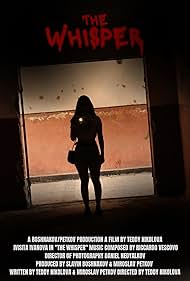
VSAFF 2021 Short Film Review “The Case”
WATCH THE TRAILER HERE
First, the Recap:
How does one react when having to handle another person’s situation that mirrors a personal travail of their own? When having absolute impartiality is a must while also having to remain cautiously objective in their plight, can it be a catalyst for indecision, or a more solidly confirming shove to take necessary steps? Lawyer Renuka (Neha Mahajan) has a case on her desk and in her hands that already fully motivates her search for justice, all while having to deal with a formidable circumstance in her own life involving her husband (Raghav Dutt). But, when her client Sakina (Bharati Perwani) and her young daughter Aisha (Neha Kadam) cause a sudden shift in events, it could spell a wake-up call for Renuka that’s been perhaps too long overdue.
Next, my Mind:
Viewed during its screening run as part of the 2021 Virtual South Asian Film Festival presented by Toyota USA, supported by AARP, produced by Jingo Ventures, and in association with DFW SAFF & NYC SAFF, this 12-minute short film project from writer/director/producer/editor Arun Varghese and producers Carroll Chiramel, Nishant Gala, Neha Mahajan, and Priyanka Murmu bears witness to a myriad of concepts and foundational, specifically socially aware, truths and undercurrents that have found there way amongst quite a number of films associated with this year’s physical and virtual festivals. It’s another element that I also often bring up (alongside my consistently voiced love of indie cinema) that South Asian efforts in particular are so adept and intermixing cultural realities into the tapestry of fictional works, and even in its abbreviated runtime, this film is yet a further example of accomplishing this.
Seen from the perspective of a hard-working female lawyer whose current case has eerie similarities to her own personal life and who gets additionally reminded of that actuality when her client pulls an unanticipated move involving the upcoming trial, thematic notions ranging from alcoholism, domestic abuse, concern of safety of others as well as our own, familial bonds both broken and deeply relevant, veiled animosity, empty promises, hollow requests for forgiveness, and all the justifications and manipulative rationalizations that, in all transparency, men so often engage in to maintain their ways are are tackled and scrutinized here in a highly distinctive manner so as to have some of these stand out while others are specifically relegated to conjecture and quite frankly through paying attention to details as you watch the film. It’s an aspect of indie film that’s been so rewarding, being able to look beyond the surface of things and dig into what’s being conveyed underneath, or at least not as obviously, yet still on display.
It is because of all of these concepts making a showing in some form that by the time the film’s finale has arrived, it not only makes sense, but is FAR more impactful and purposeful in the action we see taken and certainly adds an exclamation point to the proceedings with compelling authority. The mere fact that so many storylines I see addressed in South Asian film have somehow to do with maltreatment of women especially is so often hard to stomach, yet this critic applauds the indie community for being the bastion of aggressively bold statements (even if sometimes portrayed in a more “quiet” yet forceful fashion) through their projects so that continued awareness is brought to a trend that truly has to end. This film does a wonderful job at giving us a narrative that achieves a powerfully emphatic proclamation of seeing abuse come to an end and illustrating though how cultural pressures, patriarchal mentalities, and even “tradition” still attempt to dominate and silence those who would stand up to it. But, it IS a work fully in progress.
Mahajan shines with a muted yet indomitable intensity that burns within and showcases itself with intentionality and quietly energetic fervency through her role here as Renuka, a successful and ambitious lawyer on the cusp of defending a woman whose to testify of a heinous act committed against her. Even as Renuka prepares for this, there are small hints of troubles in her own life that she maintains awareness of, yet seems to try to shove away until multiple moments occur that not only shake her up and relentlessly remind her of them, but could manifest within her the fortitude to take action where it’s been needed to find her own sought after justice while also taking a stand for what she believes in and we believe defends at every opportunity, a drive for societal transformation. Throughout the film, with all of these emotions that are tied up in what’s depicted, Mahajan embodies them beautifully through her fully believable and acutely enacted performance.
Supporting appearances are made by Dutt as Renuka’s apparently now-absent husband whose trying to maneuver his way back into her life, Perwani as Sakina, Renuka’s client whose reasonings for coming to Renuka overtly come into question and the consequences of which could radically affect her and her daughter’s lives if they don’t tread carefully, and Kadam as Sakina’s daughter Aisha, whose words the case on Renuka’s slate relies heavily on. So, in total, “The Case” stands as a very pertinent short film effort that wears its messages on its sleeve with full conviction and intent in order to place us as the viewer in the situations at hand, comprehend then, consider them, and then ideally find an outlook that matches the fiery resolve the film’s protagonist projects at the end. It’s worthy cinema, folks, and there are truths that we need to consistently be reminded of. Ugly truths that need a much better verdict than “Oh, it’s just the way it is.”
As always, this is all for your consideration and comment. Until next time, thank you for reading!



